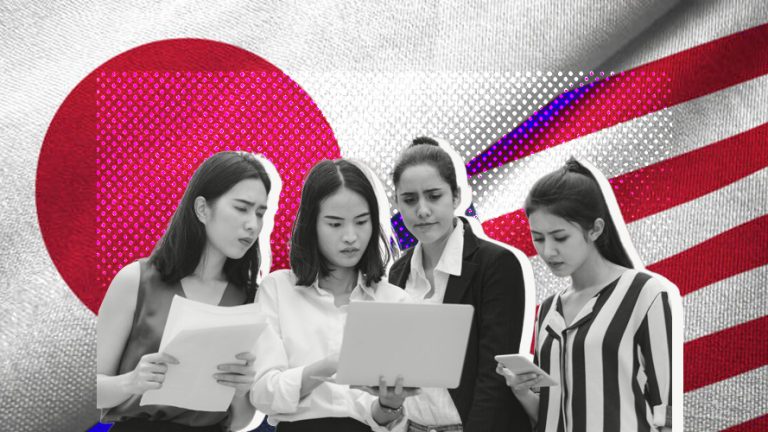The US-Japan duo has come together to focus on women’s empowerment to encourage women in tech
A State Department official in charge of gender equality initiatives said on Wednesday that the United States is looking to increase cooperation with Japan to encourage women to pursue careers in science and technology and create more women in tech. Katrina Fotovat, acting U.S. ambassador-at-large for global women’s issues, added that the topic of women empowerment in economic perspective will be discussed when the US-Japan duo leaders of the two nations meet next week and work on more tech-women in the industry.
The necessity for Japan to address its own gender inequities was also emphasized by Katrina Fotovat, acting ambassador-at-large for global women’s issues during this year’s Group of Seven rotating chairmanship. In a 2022 gender gap assessment by a Swiss think organization, Japan was ranked last among the G7 industrialised countries.
She made the comments as the U.S. government unveiled its first-ever interagency strategy, listing the areas it will concentrate on, to enhance women’s economic security globally. These include boosting entrepreneurship, eradicating systemic impediments to women’s engagement in the labor market, and lowering wage inequities through improved access to high-quality jobs.
According to the strategy, gender equity is “essential to economic development” and could lead to an additional $5.3 trillion contribution to the global gross domestic product. According to the document, women’s “economic competitiveness” might be increased by gaining access to historically male-dominated and higher-paying fields like STEM (science, technology, engineering, and mathematics).
When American President Joe Biden and Japanese Prime Minister Fumio Kishida meet on January 13 in Washington, D.C., Fotovat said she is “sure” that gender equality and economic empowerment will be discussed, and she added that the Biden administration hopes to expand some of our STEM cooperation with Japan.
The White House has stated that the two leaders will discuss a variety of regional and international security problems, including North Korea and Taiwan, in addition to working to “further strengthen connections” between their governments, economy, and people.
The senior official said it is “absolutely” crucial for Japan to increase women’s participation in areas where it is lagging behind as it seeks to demonstrate leadership on the agenda as the G-7 chair. He noted that the G-7 provides “a great opportunity” to engage on issues related to female economic security. Japan placed considerably behind Italy, the next worst G-7 member, which came in at 63rd place, in the World Economic Forum’s gender gap study last year, which included 146 countries.
While Japan received high marks for access to education and healthcare, its indicators for women’s economic participation and opportunity, which take into account their representation in elected office and other senior and managerial positions, as well as their political empowerment, remained particularly low. For the thirteenth year in a row, Iceland continued to lead the list of nations for gender equality. The US came in 27th place.
In order to realize creativity and boost productivity through diversity, the Japanese government has sponsored a number of efforts to raise the proportion of women in the workforce. As a result, women have advanced in Japanese society, which was once regarded to be dominated by men.
The Organization for Economic Cooperation and Development (OECD) reports that the labor force participation rate for Japanese women between the ages of 25 and 64 has surpassed 69.9%, coming in at 71.1%. But, like in many other nations, the glass ceiling that prevents women from advancing to executive roles remains a problem in Japan.
Aiming to increase the proportion of women in executive positions, steps are currently being taken to address this issue. The Executive Program for Women Leaders, led by Harvard Business School professors, was organized by the Japanese government in partnership with the business sector as one step toward fostering the next generation of women leaders (HBS). The participants were all female executives in high-level management positions in organizations that actively support women’s growth.






Add comment